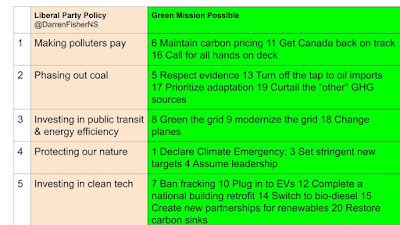Humans have disrupted a cycle essential to all life. Doctors and economists may seem like strange partners.
Christopher Ragan, Director, Max Bell School of Public Policy, McGill University and Courtney Howard, Clinical associate professor, Department of Family Medicine, Cumming School of Medicine, University of Calgary spend their days working on very different problems in very different settings. But climate change has injected a common and urgent vocabulary into our work. We find ourselves agreeing both about the nature of the problem and the best solution. It’s essential that we put a price on carbon pollution.
Emergency physician Edward Xie has worked in Toronto for over 10 years. Lately, he’s seen more patients anxious about tick bites. It’s no wonder. A recent medical study shows a fivefold increase in Lyme disease cases in Ontario between 2012 and 2017 as ticks expand their habitat northward.
Dr. Xie also notices more cases of heat exhaustion and dehydration in summer months — particularly among elderly and low-income individuals who lack adequate housing. In Toronto alone, heat already contributes to an estimated 120 deaths each year. The city expects that number to grow.1
Doctors and economists agree. Climate change is here, it’s getting worse, and the best time to do something about it is right now. One way or another, we are paying the costs of climate change — in sick days and lost wages, rising health care costs and home insurance rates, and a less stable climate for the next generation. And we’re still adding new charges to our bill. Both professions agree: we must act.
In a new open letter, more than 3,500 economists state that climate change is “a serious problem” calling for immediate action. The Lancet Countdown on Health and Climate Change research collaborative, which includes doctors and economists, agrees that adequately pricing carbon could be the single most important treatment for climate change.
Economics has a very clear prescription for these challenges: carbon pricing. In the same way that penicillin treats an infection, carbon pricing can help fight climate change. It effectively targets the root of the problem and there’s a mountain of evidence that it works.2
Several Canadian medical organizations issued a call to all federal political parties to act on climate change, urging serious treatment for what the World Health Organization calls “greatest health threat in the 21st century.”
References
1
|
(2019, June 30). COMMENTARY: Why doctors argue 'carbon pricing' can 'cure' climate .... Retrieved June 30, 2019, from https://globalnews.ca/news/5428375/climate-change-carbon-tax/
|
2
|
(2019, June 24). Climate change puts health at risk and economists have the right .... Retrieved June 30, 2019, from http://theconversation.com/climate-change-puts-health-at-risk-and-economists-have-the-right-prescription-118797
|











